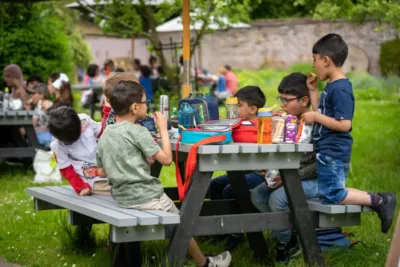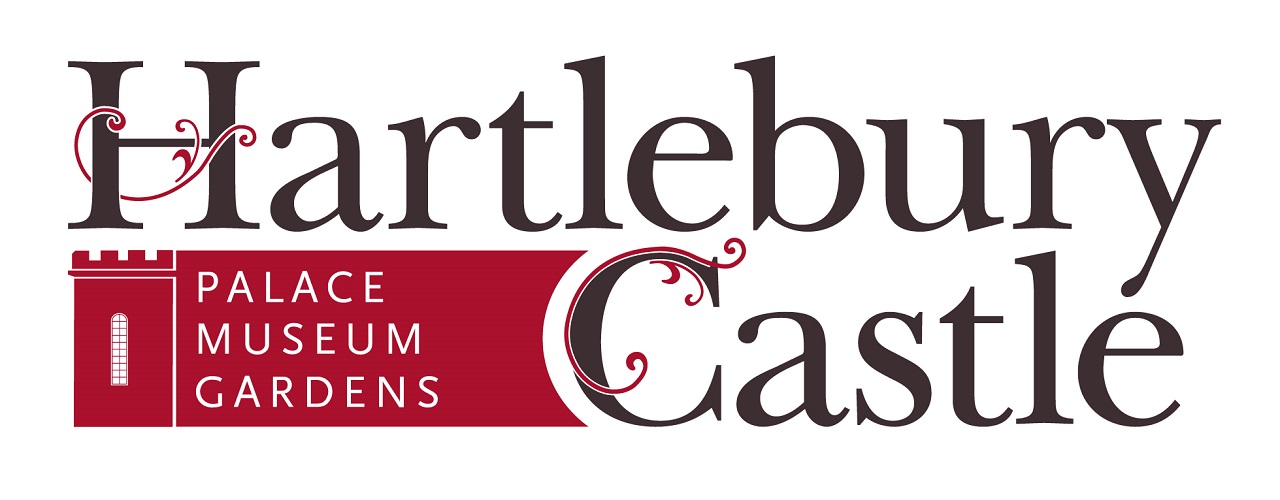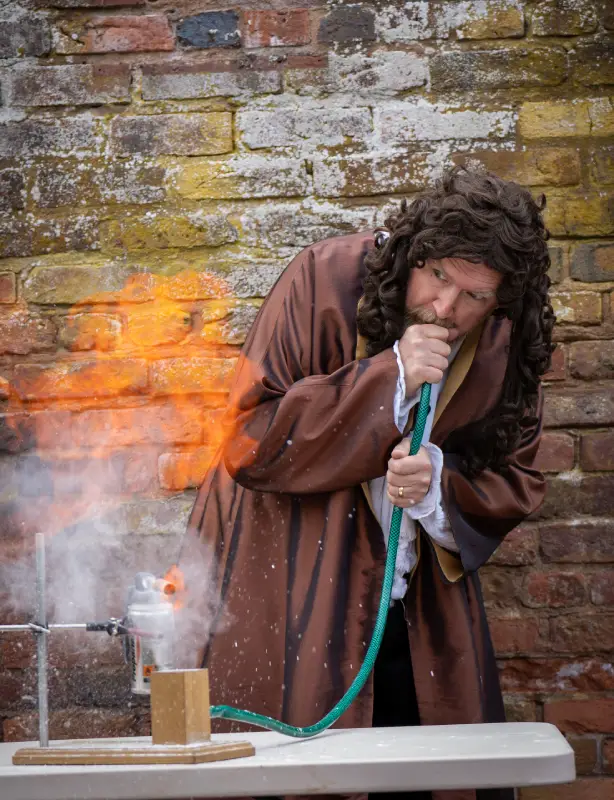School visits to Worcestershire County Museum at Hartlebury Castle
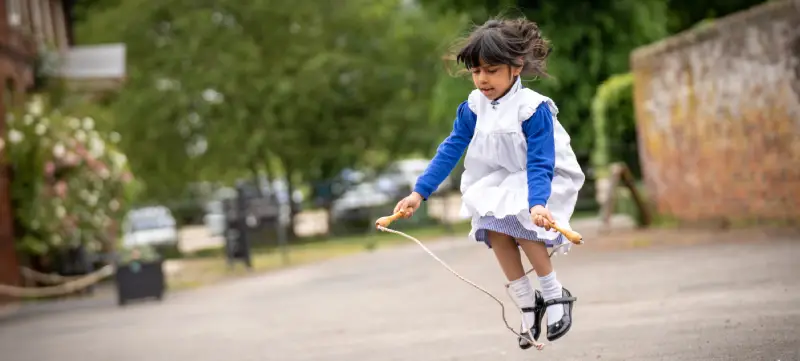
Why bring your class to the County Museum at Hartlebury Castle?
Hartlebury is full of potential for learning and creativity.
A visit will bring history to life through role-play and immersive learning, including the sensory experiences of handling real objects and exploring our historic buildings. All of our activities are led by experienced staff and support specific schemes of work whilst also helping pupils to make cross-curricular links between different subject areas.
Whether it’s a lesson with the schoolteacher in the Victorian Schoolroom or meeting the servants in the Scullery, children will find out first-hand what life was really like in historic Worcestershire.
“Best trip I have ever taken children on. The children and staff loved every minute.” Year 1 teacher.
Take a look through the sessions:
We offer the following topics for schools. Please bear in mind that these sessions are guidelines and can be adapted to suit your pupils’ age and SEND requirements or your educational programme.
Prehistoric Archaeology
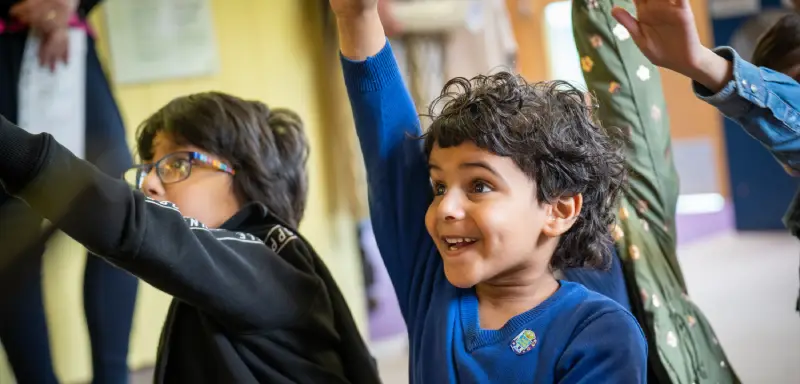
The workshop takes place in two locations, a teaching area and the archaeology gallery.
The staff-led session will look at the way our ancestors lived in prehistoric times and introduce the main resources available to early man migrating to the British Isles, after the glacial periods. Hands-on activities will illustrate how archaeologists use a temporal framework to understand their finds.
In the gallery, teacher led activities will focus on a question sheet, encouraging the children to gain a better understanding from the objects and captions. The gallery also contains exhibits from historical periods (Roman, Anglo Saxons and Mediaeval) which will be used to put their work on prehistoric cultures into context.
Below Stairs
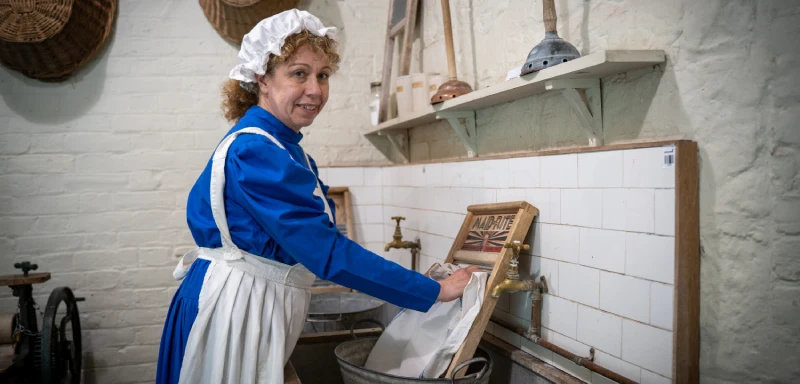
Discover what life was like ‘Below Stairs’ for Victorian servants.
Our costumed Housemaid will take children through some of the Castle’s rooms, explaining about the work of a servant and contrasting a servant’s life with that of his or her employer.
Children will then have an opportunity to take part in a number of hands-on activities using original artefacts, including washing, ironing, kitchen tasks and cleaning carpets.
Toys From the Past
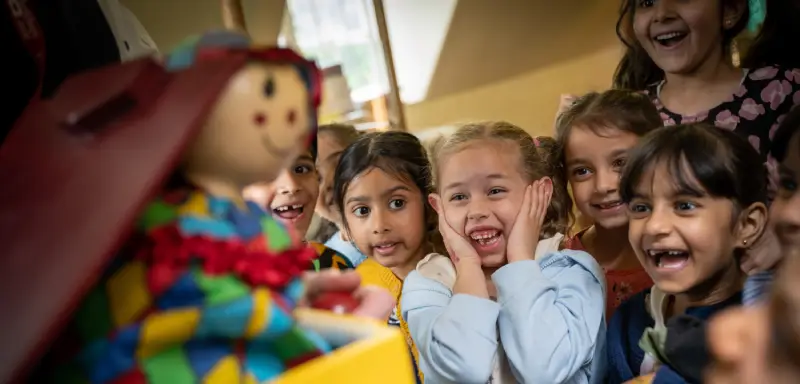
A hands-on activity looking at the similarities and differences between toys today and toys in the past.
Using toys from the Museum’s handling collection, staff will create a timeline, focusing on what materials toys are made from, how toys work and who might have played with them.
Children will have an opportunity to play with some of the toys and look at some of the museum’s collection of special toys.
Victorian Schoolroom
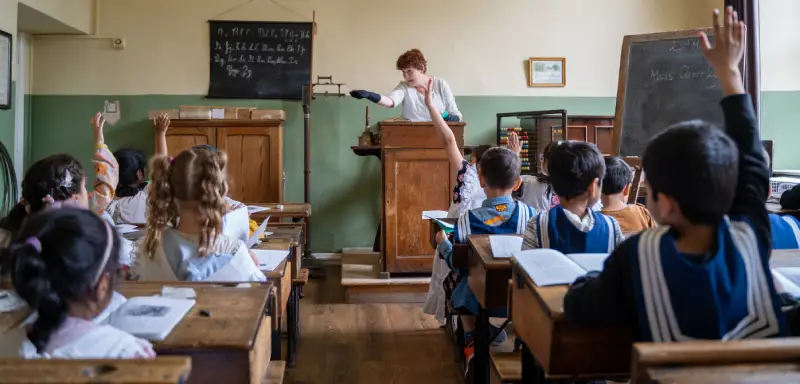
Experience a typical Victorian school morning or afternoon with one of our costumed schoolteachers.
Take part in a Victorian lesson in our schoolroom, use slates and pencils and find out about school punishments.
This will be followed by a traditional playtime with whipping tops, hoops, skipping ropes and yo-yos.
Homes from the Past
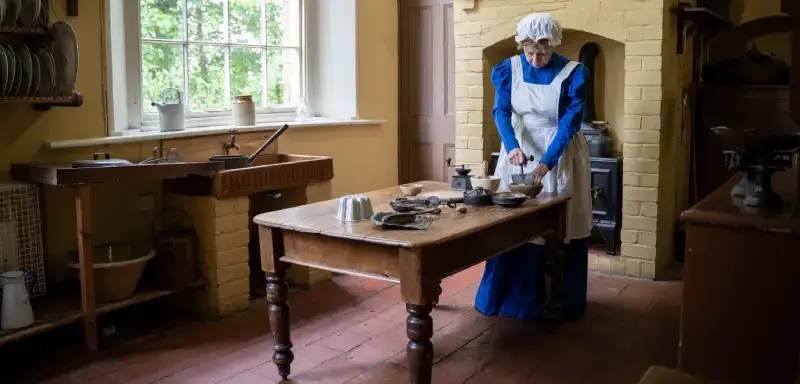
Find out what homes were like in the past, particularly Victorian homes and how they differ from today.
Children will have the opportunity to try activities such as washing and ironing, rag-rugging and handling original household objects.
Evacuated to the Castle
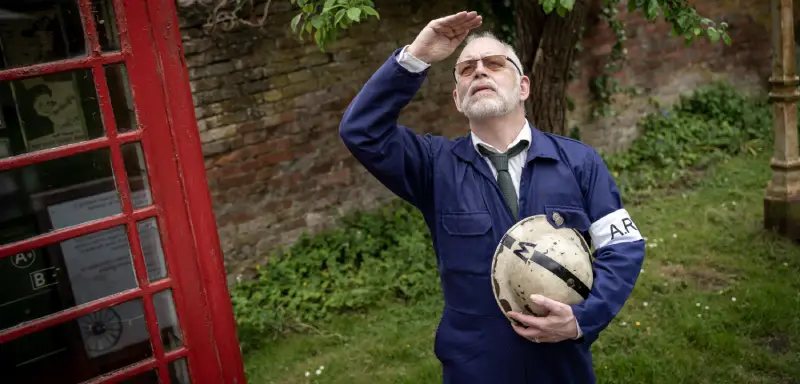
Using the schoolroom at Hartlebury, children will learn about the lives of Wartime evacuees.
Our ‘WVS leader’ or ‘ARP warden’ will talk about evacuation and children’s everyday experiences, including shopping, air raids and life in the countryside.
Children will be able to take part in a series of hands-on activities including packing an evacuee’s suitcase, sending Morse code messages, playing with wartime toys and shopping with WW2 coins.
Make Do and Mend
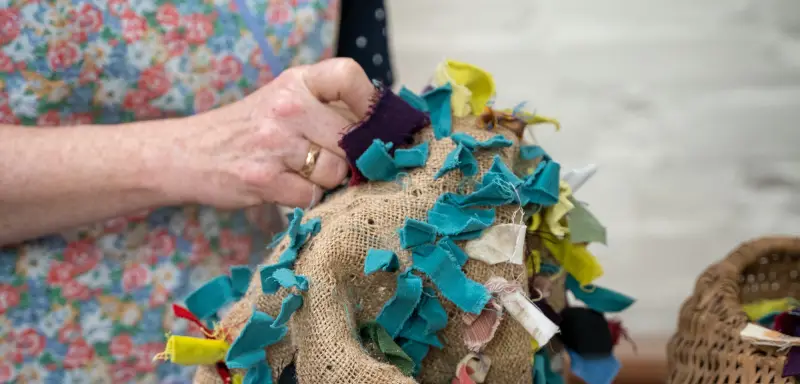
The Scullery has been set up for children to experience a morning or afternoon in the life of a Wartime child.
Our WW2 housewife will explain about life on the Homefront, Make Do and Mend and rationing.
Children will then take part in a series of hands-on activities including planning menus using rations, washing, ironing, rag rugging and dressing up in WW2 costumes.
Get in touch
Submit an enquiry form or contact the Learning Team on 01299 250416 if your query is urgent.
Outreach
We can bring a session to you! Fancy a visit from Florence Nightingale or Samuel Pepys?
Check out Outreach sessions
Where to find the County Museum at Hartlebury Castle
Make an enquiry
For more information, to discuss or make a booking with Worcestershire County Museum, please submit an enquiry form and the team will be in touch as soon as possible.
If your query is urgent, contact the Learning Team on 01299 250416.

